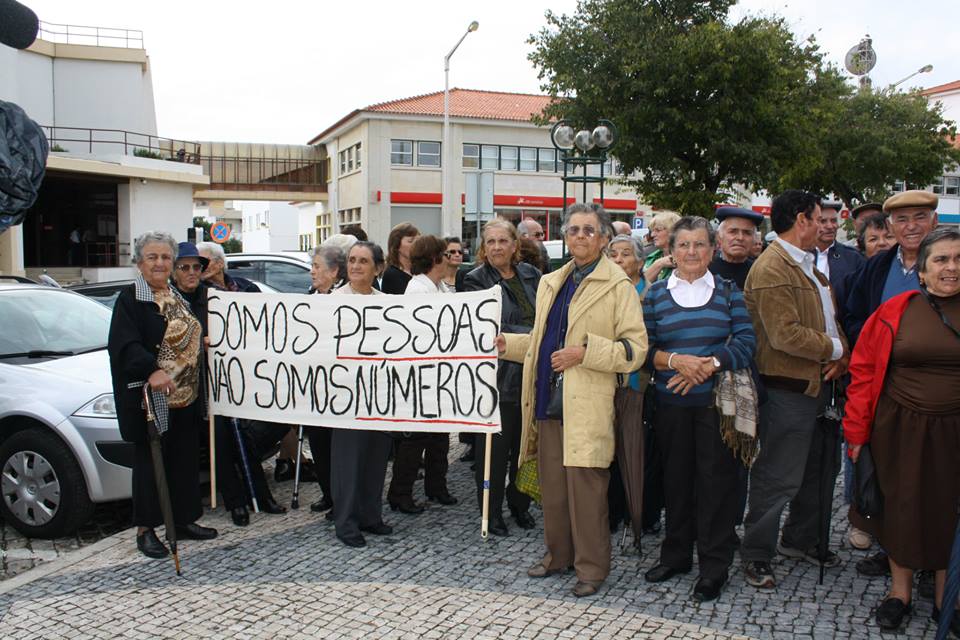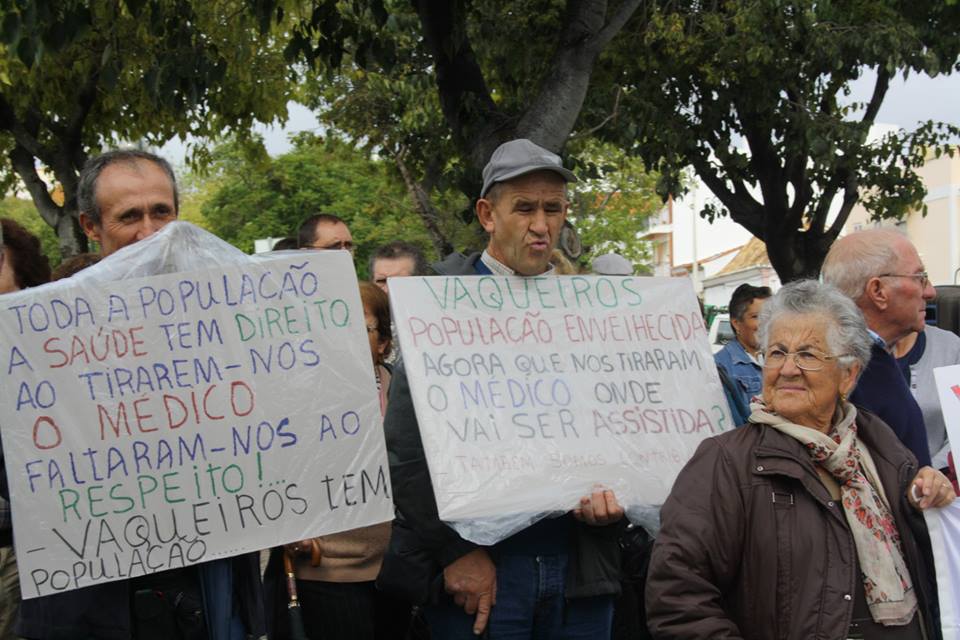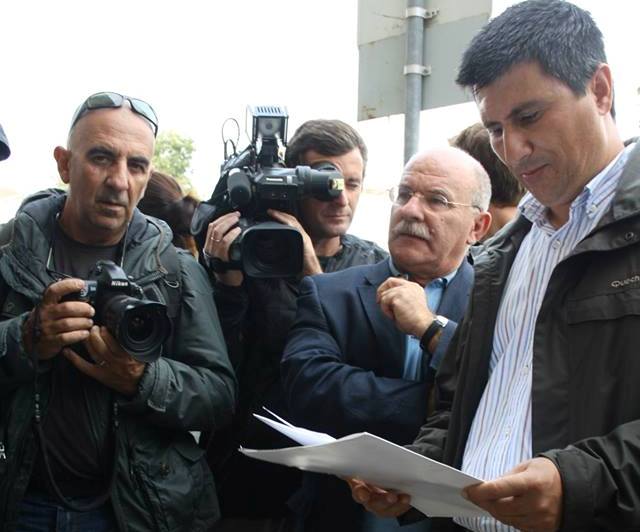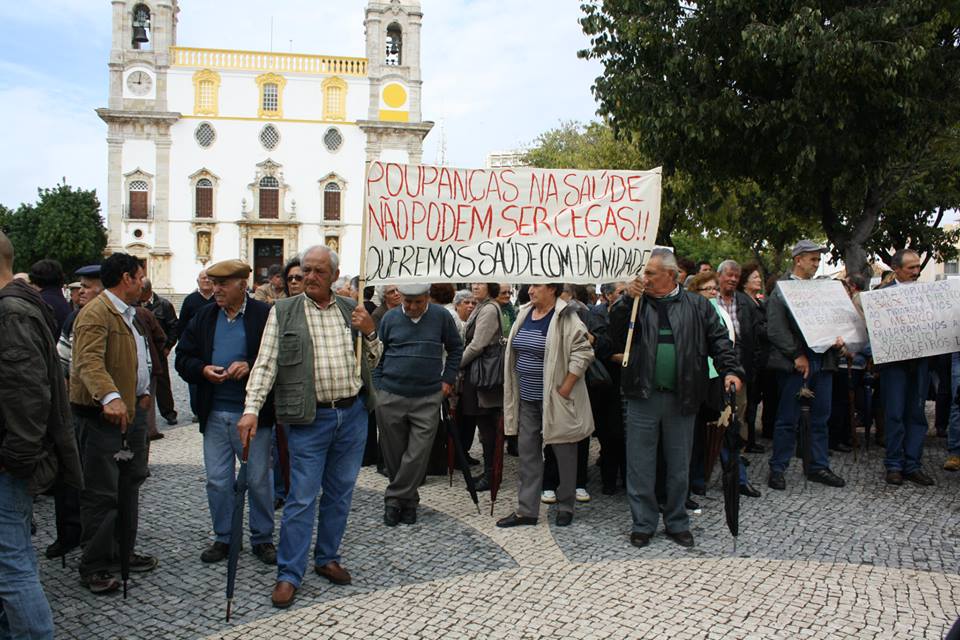 “You don't close a door without opening another one. If he doesn't, you know, he should know. If you don't have the capacity, give the place to someone else», shouted a 77-year-old resident of the parish of Odeleite, visibly irritated, addressing the representative of the Regional Health Administration of the Algarve (ARSA), who was already walking away.
“You don't close a door without opening another one. If he doesn't, you know, he should know. If you don't have the capacity, give the place to someone else», shouted a 77-year-old resident of the parish of Odeleite, visibly irritated, addressing the representative of the Regional Health Administration of the Algarve (ARSA), who was already walking away.
Francisco Pereira was one of about 200 inhabitants of Odeleite and Azinhal, parishes of Castro Marim, as well as inhabitants of Vaqueiros, in Alcoutim, who saw the local Health Extensions closed, which demonstrated this Tuesday in Faro against the closure of these services.
ARSA even showed its face, through the board member Miguel Madeira, but neither the arguments it presented to justify the closing of the health units, nor the guarantee it gave that this was not an "irreversible" process and that a return to The original situation was to be studied by a Working Group, which includes the Castromarinense Chamber and the Parish Councils, calmed the spirits of some of the demonstrators.
In Largo do Carmo, in Faro, in front of the headquarters of ARSA, the population, mostly elderly, did not hide their indignation at the closing of the Health Extensions. With the closure of these units, the inhabitants of these two parishes have to move to the county seat, which is located , in some cases, about 40 kilometers away, to have a medical appointment.
 Before, it was the doctor and the nurse who went to the parish headquarters, much closer, twice a week. A situation that has more impact on an aging population, where chronic diseases are common and the need for permanent monitoring is transversal to many of the local inhabitants.
Before, it was the doctor and the nurse who went to the parish headquarters, much closer, twice a week. A situation that has more impact on an aging population, where chronic diseases are common and the need for permanent monitoring is transversal to many of the local inhabitants.
“The solution is necessarily reopening, because it makes no sense for people to move from their parishes to the county seat. The distances are very long and, in addition, many people do not have means of transport and there is no public transport», considered the newly sworn in mayor of Castro Marim Francisco Amaral, who, yesterday morning, met with the administrators of the ARSA .
On the part of that entity, there is an opening to go back. «Since there is a tri-partite agreement, in which the City Council and the Parish Councils assume some expenses, ARSA admits this possibility. The Chamber will be able to finance the IT equipment and the boards will guarantee the administrative part. The ARS will proceed with the doctor and the nurse», he revealed.
There is still no defined timing for an eventual reopening of the two Health Extensions, but Francisco Amaral hopes to be able to dispatch the entire process quickly. "I hope that within a month we can draw up this agreement, with legal support," he said.
 The mayor argues that ARSA, "perhaps, did not measure well the decision it took." “We are talking about an elderly population, aged 70, 80 or 90, who have immense difficulty in getting around. They are diabetic, hypertensive, people with rheumatic problems, who need medical support close to home», he defended.
The mayor argues that ARSA, "perhaps, did not measure well the decision it took." “We are talking about an elderly population, aged 70, 80 or 90, who have immense difficulty in getting around. They are diabetic, hypertensive, people with rheumatic problems, who need medical support close to home», he defended.
And why was there no attempt to dialogue with the Castro Marim local authorities before closing the extensions? Miguel Madeira justified ARSA's unilateral decision with the fact that local elections are just around the corner. He also refused that the closing was solely due to the desire to save money, ensuring that it was also linked to the lack of access to the Health Centers' computer network in these extensions.
Arguments presented to journalists, but which were equally heard by many popular, who gathered at the door of the headquarters of ARSA, where the interview was taking place. The inhabitants of Odeleite and Azinhal showed little sensitivity to the justifications given and denied that, as Miguel Madeira said, all users enrolled in these health extensions «now have a family doctor».
«A person goes to the Health Center and they tell us that our file is not there and that it is closed», claimed Francisco Pereira. Claudina Brás, who was recently operated on her leg, assured that she had no access to physiotherapy because she couldn't see her family doctor.
“I was doing physiotherapy and they closed the door. The doctor gave me a letter to be signed by the family doctor. I went there and the door was closed and then it was closed again. I carry it here in my pocket», he said. Before, these procedures were carried out by the doctor who went to the parish offices twice a week.
Displacement can lead people to stop going to the doctor
 Even with a family doctor, this population is faced with a much more complicated problem to solve: the lack of regular transport between the places where they live and the county seat, where the Health Center is located.
Even with a family doctor, this population is faced with a much more complicated problem to solve: the lack of regular transport between the places where they live and the county seat, where the Health Center is located.
The many inhabitants who do not have their own transport are dependent on third parties and often give up going to the Health Center, even when they need regular monitoring. “This is a population used to suffering”, illustrated Francisco Amaral.
For the mayor from Castromarinense, this is not a new situation and he has already experienced it as the mayor of Alcoutim. “A half-dozen years ago, at the time of the Socrates Government, the Health Extension of Pereiro/Gões was closed, against my will”, he recalled.
“ARS placed a van at the service of the population, but the fact is that people did not travel. An assessment carried out some time later revealed that, on average, one person per day was commuted. The idea I have is that diabetes has gotten out of control, that hypertension has gotten out of control and that people go to the doctor sporadically, when they have a ride from an acquaintance or family member», he said.
“Those who make these decisions don't go to the places first to see how things are. They think that there are half a dozen who go to the consultation. But not! There are a lot of people who need consultations and if they went there four or five times a week, there would always be people in need», says Maria Amália, who recalls that, in the parish of Odeleite alone, «about 1500 people live».


















Comments